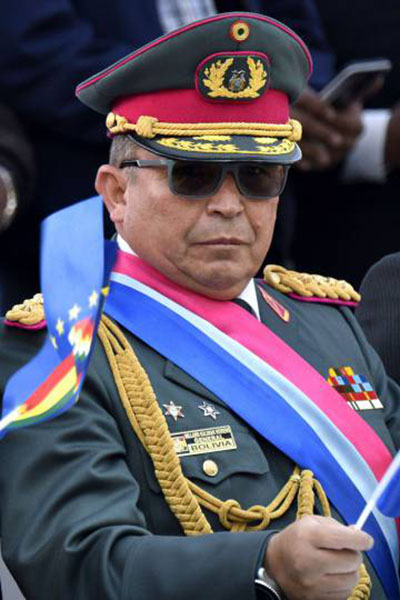CARACAS, (Reuters) – Venezuelan opposition leaders looking to oust their country’s socialist government can perhaps take some hope from the resignation of its leftist ally in Bolivia, President Evo Morales, on Sunday after weeks of street protests.
But one key factor makes the Bolivia playbook a difficult one to carry out against Venezuelan President Nicolas Maduro: Venezuela’s arm-ed forces have consistently refused to take the side of protesters as Bolivia’s military did on Sunday.
Venezuela’s barracks have stood by the ruling Socialist Party despite a crippling economic meltdown, two waves of major protests in 2014 and 2017 and broad condemnation of Maduro’s 2018 re-election that was widely described as fraudulent.
Even though opposition leader Juan Guaido has been recognized by more than 50 countries as Vene-zuela’s legitimate president, his efforts to court the armed forces have not been enough to sway their allegiance to Maduro.
Dozens of active military officers on April 30 joined Guaido in the streets of Caracas to call on military commanders to disavow Maduro, but the uprising fizzled out as military top brass declared loyalty to the president.
A Reuters Special Report found that Venezuela’s armed forces have been heavily influenced by the presence of Cuban intelligence agents who closely monitor the communications of officers suspected of dissent.
In addition, late socialist leader Hugo Chavez’s overhaul of the armed forces starting in the early 2000s fractured the chain of command and boosted the political allegiance of top officers.
Bolivia’s military has never had the same ideological links to the ruling party or its leftist politics, said Franklin Pareja, a professor at Universidad Mayor in San Andres de Bolivia.
“In Bolivia there has never been a civil-military government,” he said. “The armed forces have always been lavishly remunerated, but there has never been political conviction about the process or active participation in the government.”
Bolivian armed forces commander Williams Kaliman on Sunday publicly called on Morales to step aside, giving momentum to street protesters alleging fraud at an October presidential election that Morales was judg-ed to have narrowly won.
That move by the military was in stark contrast to Venezuelan Defense Minister Vladimir Padrino’s repeated oaths of allegiance to Maduro despite violent street pro-tests, complaints of voter fraud and broad international condemnation.
Bolivia on Monday remained convulsed by looting and roadblocks and the country remained mired in a power vacuum that Morales’ opponents were scrambling to fill.
The 60-year-old former llama herder’s departure split Latin America between right-leaning nations that celebrated his exit and leftist governments saying he was victim of a coup.
Venezuela’s opposition is hoping the success of demonstrations in Bolivia will help boost turn out for nationwide rallies that Guaido allies have called for Saturday to renew efforts to seek Maduro’s ouster.
Street activism has receded since the euphoria of January, when Guaido declared Maduro a usurper and invoked the constitution to assume an interim presidency, with many remaining frustrated that change has been slow.
But in the face of Bolivia’s quick change of government, opposition leaders were quick to note the crucial differences between the two countries.
“Why have the events in Bolivia not taken place in Venezuela?” wrote exiled opposition leader Julio Borges on Sunday night. “The explanation is in Cuba, the regime in Havana has infiltrated and kidnapped our armed forces.”










